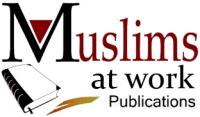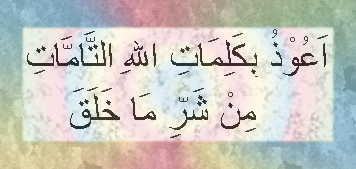
The Biography of
Muhammad Sallallahu Alaihi Wasallam
Compiled and presented by

| Lesson 28 | |||||||||||||
|
The Expedition to Tabuk The expedition against the Byzantine Empire, whose might and magnificence was well known to the Arabs, virtually meant that the Muslims were now ready to challenge the greatest power of the day. In what esteem the Arabs regarded the Romans is well illustrated by the remark made by Abu Sufyan after he had seen Heraclius honouring the Prophet's Sallallahu Alaihi Wasallam letter sent to him. Abu Sufyan had already then realised that the affair of the Prophet Sallallahu Alaihi Wasallam had become so great that the king of the Romans dreaded him. Abu Sufyan related that he was then convinced that the Prophet Sallallahu Alaihi Wasallam would ultimately emerge victorious and this was how Islam took root in his heart. (1) The Byzantine flag was flying high at the time. Its armies, under Heraclius, had dealt a deathblow to the Persian forces. Hardly two years had passed after this splendid victory when the Prophet Sallallahu Alaihi Wasallam led an army to face him. The Prophet's Sallallahu Alaihi Wasallam daring venture made such a deep impression on the minds of the Arabs that the expedition of Tabuk truly served as a prelude to the conquest of Syria during the reigns of Abu Bakr and Umar Radhi Allahu Anhuma. The Prophet Sallallahu Alaihi Wasallam wanted to warn the Byzantines that they should not consider the Muslims as weak and take any action to violate their territorial sovereignty. This objective was more than achieved as was subsequently borne out by the far-reaching consequences of the expedition. The battle of Muta was still fresh in the minds of the Byzantines who had failed to humble the Muslim army despite their vastly superior numbers. The Muslims, on the other hand, having once measured swords with them had overcome their fear of the impregnable Roman troops. The pro-Byzantine Christian tribes in northern Arabia were impressed by this first confrontation. The expedition also went a long way to drive home the reality that the rise of Islam was not a passing phase as some of the Arabs had been thinking. Islam was solid as a rock and had a great future lying ahead of it. The Time of Expedition The Prophet Sallallahu Alaihi Wasallam received reports of Byzantine forces converging on the northern frontiers of Arabia with the intention of mounting an attack on the Muslims. He ordered the Muslims to prepare. The Tabuk campaign was undertaken in the month of Rajab 9 A. H. It was the time when the date crop had ripened and shade of the trees was pleasant. The Prophet Sallallahu Alaihi Wasallam undertook a long journey and traversed deserts and arid plains to face an enemy vastly superior in numbers. As the Muslims were then passing through a period of drought, the Prophet Sallallahu Alaihi Wasallam told the Sahabah beforehand, unlike previous occasions, that he intended to face the Romans so that they could make suitable preparations.
|
|||||||||||||
Lessons to Learn This battle again proved that war in Islam was not for personal motives, anger, malice, conquering or for displaying power. War was to protect lands and religions, to warn transgressors and to stop evil and corruption on earth. |
|||||||||||||
| Hypocrites exposed The hypocrites fell out on different pretexts. They either disliked strenuous war against the powerful enemy or disliked going out in the heat. They had little interest in fighting for the sake of Allah, so they refrained from accompanying the Prophet Sallallahu Alaihi Wasallam. They were admonished by Allah : "Those who stayed behind rejoiced at their absence behind the messenger of Allah. They disliked striving with their wealth and their lives in the cause of Allah and they said : 'Go not forth in the heat!' Say : 'The fire of hell is more intense in heat'. If only they could understand." (Surah Tawbah, Verse 81) While proceeding for Tabuk the hypocrites came to the Prophet Sallallahu Alaihi Wasallam and asked him to perform a prayer in a masjid which, according to them, they had built for the disabled and infirm. He replied that the issue would be attended to once he returned from the expedition. When he returned he learnt by divine inspiration that the masjid had been built with evil motives. He ordered that it be burnt as it had been built with the intention of disuniting the Muslims and doing harm to the Prophet Sallallahu Alaihi Wasallam. (2)
|
|||||||||||||
| Lessons to Learn The fact that the Muslims hastened to the call of their leader to war showed their sincerity. The hypocrites falling out and making excuses showed their insincerity. Trials and difficulties expose and differentiate between those who are true and those who are false. |
|||||||||||||
| Enthusiasm of the Muslims The Prophet Sallallahu Alaihi Wasallam took particular care to prepare for the expedition. He urged upon the affluent Sahabah to donate handsomely for the campaign with the result that many a well-to-do companion made lavish contributions for it. Uthman Radhi Allahu Anhu spent one thousand dinars on the army and provided nine hundred camels and a hundred horses. Abu Bakr Radhi Allahu Anhu gave all that he had. Umar Radhi Allahu Anhu gave half of his possessions. Similarly, Abbas, Talha, Sa'd Ibn Ubadah Radhi Allahu Anhum and others gave money for the welfare of the army. Despite this, the army was still not well equipped. A number of Sahabah who were unable to raise money for their mounts requested the Prophet Sallallahu Alaihi Wasallam to arrange something for them. As, however, their requests could not be met for want of funds, the Prophet Sallallahu Alaihi Wasallam expressed his inability to comply with their request and they had to go back disheartened. Some of them were so depressed that Allah sent down revelation exempting them from the duty of joining the expedition: "Nor is there any blame on those who came to you to be provided with conveyances when you said: I cannot find conveyances for you. They turned back with eyes flowing with tears of sorrow that they could not find the means to spend." (Surah Tawbah, Verse 92)
|
|||||||||||||
| Lessons to Learn Human nature is that man becomes pleased and happy when he escapes death, uncertainty and war. These men cried because of these very factors because they loved Islam and they knew of the reward attached to martyrdom. How strong was their faith in the face of death!
|
|||||||||||||
| Army Departs for Tabuk The Prophet Sallallahu Alaihi Wasallam set out for Tabuk from Madinah with an army 30 000 strong. In no other campaign, before Tabuk, had such a large army been prepared. The Prophet Sallallahu Alaihi Wasallam put Muhammad Ibn Maslama al-Ansri Radhi Allahu Anhu in charge of Madinah and left behind Ali Radhi Allahu Anhu to look after his family. When Ali Radhi Allahu Anhu complained to the Prophet Sallallahu Alaihi Wasallam that the hypocrites were spreading false rumours about him, he replied: "Are you not content, O Ali, that you are to me as Haroon was to Musa, except that there will be no prophet after me?" (3) Passing the ruins of the Thamud When the Prophet Sallallahu Alaihi Wasallam made camp in al-Hijr, the land of the Thamud, he told the Sahabah that it was the country of those who were being tortured for their sins. They were the nation that the Qur'an describes as being so mighty that they had carved their homes in mountains of rock. The Prophet Sallallahu Alaihi Wasallam said to them : "If you enter the houses of those who did wrong to themselves, enter tearfully with the fear that you may also meet the same fate that befell them." He ordered : "Do not drink any of its water nor use it for ablutions. If you have used any for dough then feed it to the camels and eat none of it." (4)
|
|||||||||||||
| Lessons to learn Places on earth where Allah's punishment has descended are not places of fun and entertainment. Men of intelligence take lesson from such places and fear that they are not afflicted with a similar torment.
|
|||||||||||||
| Treaty of peace with ruler of Aylah Yuhanna Ibn Ru'ba, the governor of Aylah, called upon the Prophet Sallallahu Alaihi Wasallam at Tabuk. Yuhanna made a treaty of peace and also paid the poll tax. So did the people of Jarba and Adhruh. They were all given guarantees of safety.
|
|||||||||||||
| Lessons to learn The Prophet Sallallahu Alaihi Wasallam signed numerous peace treaties in his life. This again shows that Islam encourages Muslims to live in peace and harmony with non-Muslims who are like-minded.
|
|||||||||||||
| Back to Madinah The Byzantine Empire did not send any detachments to their borders to drive back the Muslim army. When the Prophet Sallallahu Alaihi Wasallam saw that there was no movement of troops by the enemy, who seemed to have abandoned the border towns, he gave orders for the return march. The objective of the expedition having been achieved, the Prophet Sallallahu Alaihi Wasallam did not consider it necessary to advance further into enemy territory to carry on hostilities.
|
|||||||||||||
| Lessons to Learn The expedition of Tabuk was a landmark in the life of the Prophet Sallallahu Alaihi Wasallam as well as in the onward march of Islam. It had a far-reaching effect on the future course of events leading to the glorious conquests of Islam, which were to come. It taught the Arab tribes and the Romans that Islam was a force to be reckoned with. It reinforced the point that Islam had the entire Arabian Peninsula in its control and was not afraid of a foreign invader. The Prophet's Sallallahu Alaihi Wasallam quick decision to march against the Romans, despite difficult circumstances, was an accurate and precise estimation of the situation. Had he tarried or responded passively this would have allowed the enemy to boldly attack the Muslims and the result would have had negative implications on the Muslim's military credibility. |
|||||||||||||
_________________________________________ (1) Bukhari (2) Tafseer Tabari (3) Ibn Hisham (4) Ibn Hisham _____________________________ |
|||||||||||||
| Dua when encountering and enemy
Meaning : I seek protection with the perfect words of Allah from the evil that He has created. |
A Hadith The world is a prison for the believer and paradise for a disbeliever. (Muslim) |
||||||||||||

